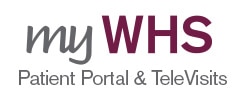
Dr. Taylor Starr is currently a second-year family medicine resident at The Washington Hospital. She is originally from Western Pennsylvania and grew up in the north hills area of Pittsburgh. She attended Clarion University of Pennsylvania for undergraduate studying biology. She then attended Lake Erie College of Osteopathic Medicine in Erie, PA for medical school. In her free time, she enjoys staying active with her family, hiking, and reading novels.
Breast Cancer Awareness
With October being Breast Cancer Awareness month, it’s a great opportunity to remind people of the signs and symptoms of breast cancer as well as breast cancer screening tools. Breast cancer is a disease in which malignant (cancer) cells form within the breast tissue. According to the American Cancer Society, when breast cancer is detected early, the 5-year survival rate is 99%. Early detection screening includes doing monthly self-breast exams, scheduling clinical breast exams, and mammograms.
A self-breast exam is something every woman should do once a month at home. The purpose is to become familiar with the way your breasts normally look and feel. This self-awareness will help you identify any changes or abnormalities in the breasts. Any changes you discover during a breast self-exam such as a new lump, sore spot, changes in the appearance of the skin, or nipple discharge should be reported to your doctor right away for further evaluation.
While a self-exam is a useful tool, it should not take the place of clinical breast exams and regular mammograms. A clinical breast exam is performed by a healthcare professional who is trained to recognize many different types of abnormalities. This in office exam can be completed by your family doctor or gynecologist.
Mammograms are an x-ray that allow specialists to examine the breast tissue for any suspicious areas. The breast is exposed to a small dose of radiation that produces an image of the breast tissue. Mammograms can often show a breast lump before it can be felt. Mammograms are recommended for all women 40 and older every 1 to 2 years. Women who are younger than 40 and have risk factors for breast cancer should ask their healthcare provider if mammograms are advisable.
Reach out to your family doctor to learn more about self-exams and to answer any of your questions regarding breast cancer screenings.


